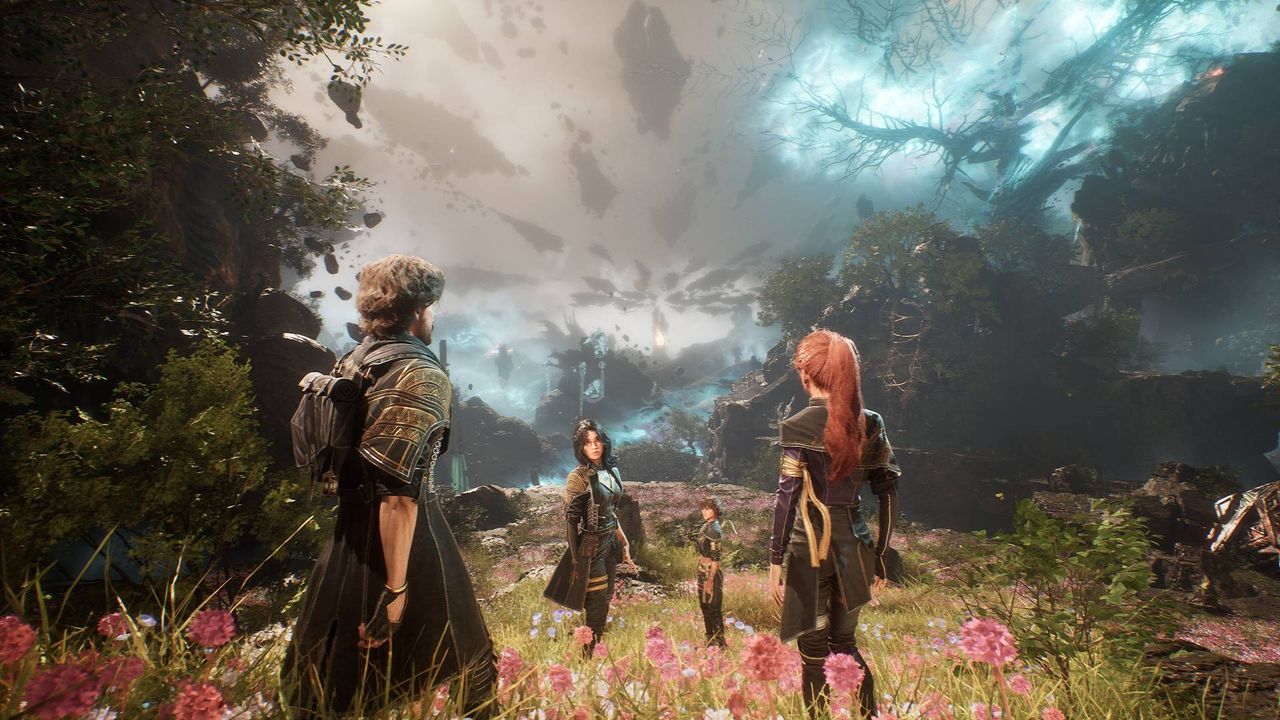
Clair Obscur: Expedition 33 is well known for having a small core development team, but they were also helped out by a lot of outsourced talent, which one BioWare veteran reckons we can thank for the in-house devs at Sandfall Interactive being able to remain so focused on "building that core."
Former BioWare executive producer Mark Darrah – who has credits on Dragon Age 2, Inquisition, and more – has this week released a whole video on his YouTube channel discussing outsourcing in games (below), in which he talks about Clair Obscur: Expedition 33's approach, from what he can observe from the outside. As he points out, although there were (very aptly) around 30 people working on the RPG from within Sandfall, "they did fairly significant outsourcing" as you can see in the game's credits.
However, this outsourcing was also "very targeted, very focused," Darrah believes, with teams outsourced to do "a bunch of their animation," as well as quality assurance (with an outsourced team that Darrah says "seems to be larger than the core team"), compatibility and performance testing, not to mention "audio and music localization," and their publishing partner.
As Darrah points out, the devs notably didn't outsource things like "level art," or art in general, if the game's credits are anything to go by. He says, "To me, what it looks like is they chose things that they were able to encapsulate very effectively. Because of the nature of their combat, the combat design and the combat animation aren't as tightly coupled as they are in a real-time game, so they are able to outsource combat animation, outsource gameplay animation, and have a wider acceptable range of what comes back."
He continues, explaining that if Sandfall Interactive got "something back that looks cool, they can make that work," while a game with a real-time combat system might struggle to "integrate" an animation with the actual game design.
Darrah says that he'd expected to see "co-dev partners and entire teams building levels" before looking at the RPG's credits, "but instead what I see is very focused, very clearly delineated areas of outsourcing, which is amazing. Which would have allowed them to have a much greater degree of success with these partnerships, which allowed them to have that super tight team in the center of the game, that everyone knew each other, everyone knew everyone's strengths and weaknesses, everyone was able to synergize together into a very cohesive unit."
Furthermore, in regard to the outsourced devs, Darrah suggests that they were brought in where Sandfall was "able to largely isolate them from the rest of the development." He acknowledges that he doesn't know that this is definitely what happened, as it's possible that the outsourced devs were also "tightly integrated to the team," but based on what parts were outsourced, he believes that "the game team was very focused on building that core, and then they were grafting on the capabilities and the skill sets and the specialization of these outsourcing partners."
However it happened, the devs were clearly onto a winning formula, anyway – Clair Obscur: Expedition 33 is still the best-rated game of the year so far on Metacritic (if we exclude the two Switch 2 Zelda upgrades that have stolen the top spots).







